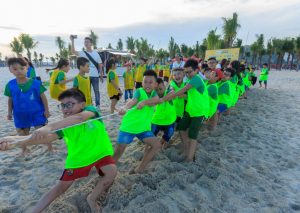Early experiments in capturing motion can be traced back to the invention of the camera obscura, a device that projected images onto a surface. However, it wasn’t until the late 1800s that inventors began to explore the possibility of recording moving images. Pioneers like Louis Le Prince and Thomas Edison played crucial roles in the development of early motion picture cameras. In 1888, Le Prince created the first moving picture film, “Roundhay Garden Scene,” which consisted of just two seconds of footage. In the United States, Thomas Edison and his assistant, William Kennedy Laurie Dickson, developed the Kinetoscope in the early 1890s.
- For instance, medical residents who work long hours may struggle with decision-making and critical thinking due to sleep deprivation, potentially compromising patient care.
- This recognition not only validates the importance of folklore but also reinforces its role in shaping national identity.
- Humans have long been fascinated by the concept of language in animals, leading to extensive research on the cognitive abilities of various species.
- Reconnecting with ancient artifacts can also foster a sense of wonder and curiosity about our shared human experience.
- Just as a historian examines artifacts to understand the past, psychologists study memory to uncover the underlying mechanisms that govern our cognitive processes.
- By fostering a dialogue that encompasses various perspectives, we can better navigate the complex ethical landscape of cloning and make informed decisions about its future.
As cultures interacted, they borrowed and adapted elements from one another, leading to the emergence of new dialects and writing styles. In addition to trade, the spread of religion played a crucial role in the evolution of writing and language. The dissemination of sacred texts, such as the Bible and the Quran, necessitated the development of standardized writing systems.
porn anal Güncel Giriş Adres
The potential for cyberattacks and system failures increases as we become more dependent on technology. Building resilient systems that can withstand disruptions and ensuring robust cybersecurity measures will be critical in safeguarding our future. In conclusion, the technologies of the future hold immense promise for transforming our lives and society. However, as we embrace these advancements, we must remain vigilant about the ethical, social, and environmental implications they entail.
When the weather is less than ideal, reaching out to friends or family for a virtual hangout or planning indoor gatherings can create a sense of community and support. Sharing experiences and feelings with others can alleviate feelings of isolation and promote a sense of belonging, regardless of the weather outside. Certain foods can have a positive impact on mental health, and being mindful of dietary choices can help individuals maintain a more stable mood throughout varying weather conditions.
By embracing the richness of our differences while recognizing our shared humanity, we can work towards a more harmonious coexistence. Ultimately, the study of religion invites us to engage with profound questions about existence, morality, and the nature of the divine. As we seek to understand the features of different faiths, we are reminded of the importance of empathy, respect, and open-mindedness in our interactions with others. In a world where faith continues to shape identities and communities, the journey of exploration and understanding is one that enriches our lives and deepens our connections with one another. As we move forward, let us carry with us the lessons learned from the diverse tapestry of religious traditions. Just as the sun rises each day, illuminating the world and nurturing life, water plays an equally vital role in sustaining all forms of existence on our planet.
Utilizing data and research to understand the impact of volunteering can further enhance its role in society. By collecting and analyzing data on volunteer activities, organizations can assess the effectiveness of their programs and identify areas for improvement. This evidence-based approach can help demonstrate the value of volunteering to Dark web services stakeholders, including funders and policymakers. By showcasing the tangible benefits of volunteer efforts, organizations can secure support and resources to expand their initiatives and reach more individuals in need. When individuals come together to support one another, they create a ripple effect that can lead to transformative change.
In conclusion, fear is a multifaceted emotion that plays a significant role in shaping human behavior and experiences. From its evolutionary roots to its modern manifestations, understanding the psychology of fear is essential for personal growth and well-being. Ultimately, fear can be transformed from a source of distress into a powerful catalyst for resilience, creativity, and connection. As we continue to explore the complexities of fear, it is crucial to approach it with curiosity and compassion.
This duality illustrates that individual responses to weather can vary widely based on personal preferences and experiences. For instance, individuals living in regions with prolonged periods of gray skies and rain may be at a higher risk for developing mood disorders. This geographical aspect of weather and mood highlights the importance of considering environmental factors in mental health discussions. Interestingly, cultural perceptions of weather can also influence how individuals respond to different conditions. In some cultures, rainy weather is associated with renewal and growth, while in others, it may be viewed as a nuisance. These cultural narratives can shape our emotional responses and attitudes toward various weather conditions.
In conclusion, folklore is not merely a relic of the past; it is a living, breathing aspect of culture that continues to evolve and resonate with people today. As we move forward, it is essential to recognize the importance of folklore in our lives and to actively engage with and celebrate the rich tapestry of stories that define our cultural heritage. By doing so, we ensure that the voices of our ancestors continue to echo through time, enriching our understanding of who we are and where we come from. As we embrace the future, let us commit to nurturing and preserving the folklore that binds us together, recognizing its power to inspire, educate, and unite.
In an era where geopolitical tensions often dominate headlines, the collaborative nature of space exploration offers a hopeful narrative of unity and shared purpose. With Earth facing challenges such as climate change, overpopulation, and resource depletion, the idea of establishing a human presence on Mars or other celestial bodies is gaining traction. Space agencies and private companies are investing in technologies that could make this a reality, from advanced life support systems to sustainable habitats.
Additionally, dance festivals and competitions often draw large crowds, benefiting local businesses such as hotels, restaurants, and shops. This economic aspect highlights how dance not only enriches cultural life but also serves as a vital economic driver in many communities. Uniting diverse communities through dance can also lead to greater social understanding and empathy.
This early exposure lays the foundation for language acquisition, as children gradually learn to associate sounds with meanings. The process of language development in children is a microcosm of how languages evolve over generations. Historical events, such as migrations, conquests, and trade, have played a significant role in shaping languages. For instance, the spread of the Roman Empire led to the diffusion of Latin, which eventually evolved into the Romance languages we know today, such as Spanish, French, and Italian. Similarly, the influence of the British Empire facilitated the global spread of English, resulting in various dialects and creole languages. Moreover, the interaction between different linguistic groups often leads to language contact, which can result in borrowing and blending of linguistic features.
porn anal Giriş Adresi Hakkında Bilgi
Moreover, the inclusion of dance in educational curricula can enhance students’ overall learning experiences. Research has shown that engaging in dance can improve cognitive abilities, boost creativity, and enhance physical fitness. By integrating dance into academic settings, educators can create a more holistic approach to learning that addresses the diverse needs of students. This not only benefits individual learners but also contributes to the development of a more vibrant and dynamic society.
Families should take the time to reflect on what traditions resonate with them and why they hold significance. This reflection can lead to a deeper appreciation for the customs that have been passed down through generations, as well as an understanding of how new traditions can enrich their family life. By being intentional about the traditions they choose to uphold, families can create a meaningful legacy that reflects their values and aspirations.
- Throughout history, various dance movements have emerged as forms of protest or social commentary.
- Instead, we can celebrate their significance and continue to learn from the wisdom they impart, fostering a deeper appreciation for the rich tapestry of human history that they represent.
- This phenomenon can create unrealistic standards and expectations, influencing how people perceive their own worth and identity.
- Health professionals should be trained to recognize the signs of noise-related health issues and provide appropriate interventions.
- Buried beneath the sands of time, the secrets of the Egyptian pharaohs continue to captivate historians, archaeologists, and enthusiasts alike.
Policymakers must be informed by scientific evidence to create regulations that protect public health and the environment while promoting innovation. Initiatives that promote citizen science, where the public participates in scientific research, can foster a sense of ownership and responsibility towards scientific progress. Emerging fields such as quantum computing, biotechnology, and nanotechnology hold promise for solving some of the most pressing challenges facing humanity. Quantum computing, for instance, has the potential to revolutionize data processing and problem-solving capabilities, leading to breakthroughs in medicine, materials science, and cryptography. Similarly, advancements in biotechnology could lead to innovative solutions for sustainable agriculture, environmental remediation, and personalized healthcare.
porn anal Nasıl Yatırım Yapılır?
The holiday involves cooking a special dish made of newly harvested rice, which is offered to the sun god as a gesture of gratitude. Pongal is characterized by vibrant decorations, traditional music, and dance, showcasing the rich cultural heritage of the region. The festival not only celebrates the agricultural bounty but also reinforces community bonds as families and neighbors come together to participate in the festivities.
This includes not only teaching technical skills but also instilling an understanding of the ethical implications of technology and the importance of responsible usage. By empowering individuals with knowledge, we can create a society that is not only technologically advanced but also socially conscious. In addition, the role of policymakers and industry leaders is paramount in shaping the future of technology.
- The Codex Gigas contains a variety of texts, including the Bible, historical accounts, and medical knowledge, showcasing the breadth of knowledge that was preserved during the Middle Ages.
- The geopolitical landscape was irrevocably altered, with the emergence of the United States and the Soviet Union as superpowers.
- By prioritizing the welfare of its citizens, democracy contributes to overall social stability and cohesion.
- In today’s digital age, individuals have access to a vast array of resources and platforms that can facilitate creative expression.
- Embracing this complexity allows for a more nuanced understanding of fear and its role in our lives.
Observed from December 26th to January 1st, Kwanzaa was created in the United States in the 1960s to promote unity and cultural pride among African Americans. Each of the seven days of Kwanzaa is dedicated to one of the seven principles known as the Nguzo Saba, which include unity, self-determination, and collective work and responsibility. Kwanzaa emphasizes the importance of community, cultural identity, and the celebration of African heritage, fostering a sense of belonging and pride.






